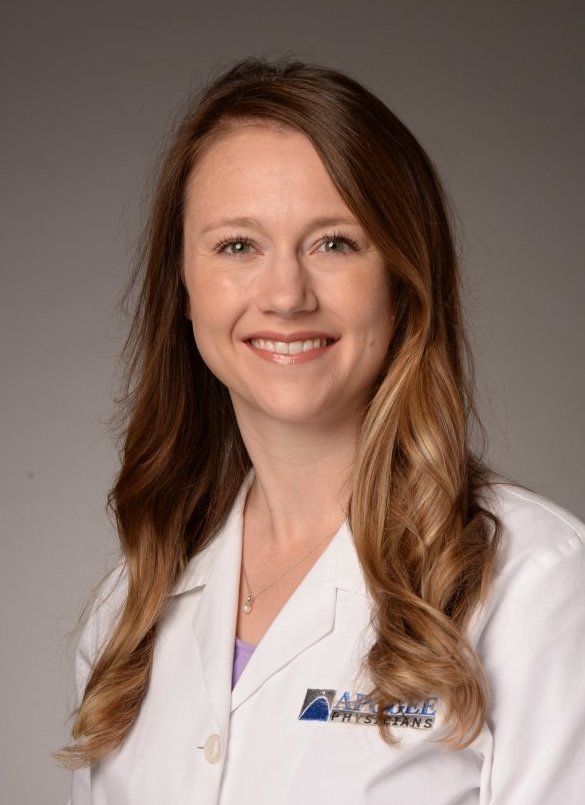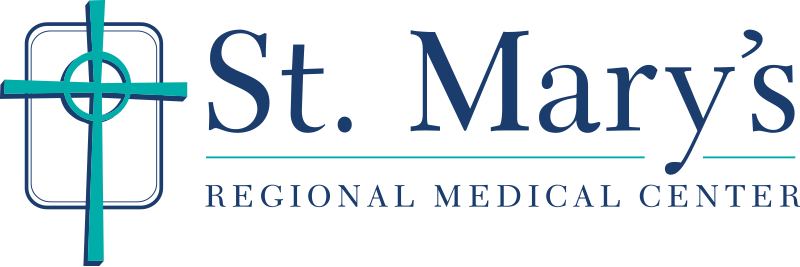Inpatient Rehabilitation in Enid
The Rehabilitation Institute at St. Mary's Regional Medical Center is a 22-bed inpatient rehabilitation facility. We offer comprehensive inpatient rehabilitation services including 24-hour nursing care, on-staff dedicated rehabilitation physician and neuropsychologist, physical therapy, occupational therapy, speech therapy, case managers and dietary services.
Watch as Dr. Sara Oldham, Medical Director of the Rehabilitation Institute, discusses the types of patients they treat, the services they provide and the goals of the institute.
Our program is dedicated to treating individuals who can benefit from intensive inpatient therapy (at least three hours a day, 5-7 days a week) and 24-hour medical management, and who are being treated for the following conditions:
- Stroke
- Brain injury
- Multiple fractures
- Amputation
- Major multiple trauma
- Spinal cord disorders
- Neurological disorders such as Parkinson's, Multiple Sclerosis, Guillian Barre
- Debility
- Laminectomy
- Cardiac conditions
- Coronary artery bypass graft
- Abdominal aortic aneurysm
- Neuropathy
- Orthopedic injuries
- Peripheral vascular disease
- Respiratory failure
- Myocardial infarction
- Pneumonia
- Sepsis
- Other debilitating conditions
Contact the Rehabilitation Institute
If you would like to learn more or would like to refer a patient, please call us at 580-548-5001.
We take patients from St. Mary's, other hospitals and from home. Our highly trained staff is dedicated to helping each patient set goals and gain as much independence as possible during their 2-3 week rehabilitation stay. Because families are important to patient recovery and success, we provide immediate and intensive family training as part of our program. Our goal is to design an individualized program for each patient so they can improve their function, confidence and independence on the road to recovery.
The Rehabilitation Institute is accredited by the Commission on Accreditation of Rehabilitation Facilities (CARF).
Patient success story: Randy Caywood
Randy suffered a stroke in 2023. He chose St. Mary's Regional Medical Center's Rehabilitation Institute for his inpatient therapy. In his own words, Randy describes his therapy and how it helped him start taking steps towards a successful recovery.
Top 10 percent of inpatient rehab facilities in U.S.
The Rehabilitation Institute was ranked in the top 10 percent of 868 inpatient rehabilitation facilities that qualified to be ranked in the IRF database of Uniform Data System for Medical Rehabilitation.
Physical therapy
Physical therapy services are provided on the average 1.5 hours a day, 5-7 days a week during an inpatient rehabilitation stay. Physical therapists will complete a comprehensive evaluation for each patient and establish a patient-driven treatment plan consisting of the patient's strengths and weaknesses, long-term and short-term goals, and specific treatment strategies. They will work with the interdisciplinary team, the patient and their family to help ensure all physical therapy goals and treatment strategies are carried out throughout the patient's stay.
The focus of physical therapy treatment for inpatient rehabilitation is joint mobility, range of motion, pain management, motor function/strength, sensory awareness, posture, balance, transfers, wheelchair mobility/management, standing, gait, advanced ambulation skills, endurance, reconditioning, skin care, adaptive equipment needs, community mobility, home evaluations, patient/family education and development of home exercise programs.
Occupational therapy
Occupational therapy services are provided on the average 1.5 hours a day, 5-7 days a week during an inpatient rehabilitation stay. Occupational therapists focus on treatments to improve activities of daily living including eating, bathing, dressing, work activities, home management, leisure activities and community activities. They also focus on sensory motor skills, cognitive integration, psycho-social skills and visual/perceptual impairment remediation.
Occupational therapists work with the interdisciplinary team, the patient and their family to help ensure all occupational therapy goals and treatment strategies are carried out throughout the patient's stay. They provide families with hands-on education to ensure they will be comfortable assisting the patient with activities of daily living upon discharge.
Speech therapy
The inpatient rehabilitation speech language pathologist is responsible for evaluating and treating adult patients with speech and language disorders, dysarthria (slow slurred speech), aphasia, cognitive impairments, swallowing problems (dysphagia), apraxia, voice disorders, neglect, visual field cuts, reading and writing impairments and fluency disorders. The focus of speech language pathology is to improve communication, swallow function and cognition so the patient may be as independent and safe as possible as they return to their prior level of function.
All our speech pathologists are trained to perform and make recommendations based on modified barium swallows to help ensure a patient's safety during all oral intake. They also can provide e-stim to improve speech and swallow function. The medical director will determine the need for a speech language pathology evaluation with input from the interdisciplinary team. The speech language pathologist will complete the evaluation, make recommendations and establish a patient-driven treatment plan consisting of the patient's strengths/weaknesses, long-term and short-term goals and specific treatment strategies.
Neuropsychology
The need for neuropsychology services will be determined by the medical director with input from the interdisciplinary team. The neuropsychologist will assist patients in making sound emotional and behavioral adjustments to their disability, assess and make recommendations concerning cognitive function, assist with treatment planning and provide the patient and their family with education, coping strategies and recommendations for continued success.
Nursing
Our rehabilitation nurses are specifically trained to provide 24-hour care under the supervision of the medical director and other physicians involved in the care of the patient. They assess and develop plans of care for bowel and bladder management, medication management, skin care and disease management. Our nurses assist patients in practicing and using the skills they have learned during their daily rehabilitation therapy. Rehabilitation nurses also spend time educating and training the family to assist and care for any medical needs the patient may have at discharge.
Medical Director
 Dr. Sara Oldham, Medical Director, serves as the clinical leader for the inpatient rehabilitation teams. She is responsible for directing the rehabilitation plan of care by ordering the needed therapy services, setting patient-specific goals and monitoring each patient's progress toward those goals.
Dr. Sara Oldham, Medical Director, serves as the clinical leader for the inpatient rehabilitation teams. She is responsible for directing the rehabilitation plan of care by ordering the needed therapy services, setting patient-specific goals and monitoring each patient's progress toward those goals.
Dr. Oldham manages all medical concerns and issues and helps ensure the patient is medically stable and functioning at their highest level. She educates and keeps families informed on how the patient is doing medically and how they are progressing in the rehabilitation program. The medical director helps ensure patients will have a smooth discharge from the rehabilitation unit by making sure medication, follow-up services and needed equipment have been ordered. The medical director also arranges consulting services and medical coverage as the patient's needs dictate.
Social worker/case manager
The rehabilitation social worker/case manager will serve as the primary liaison between the patient, the family and the interdisciplinary team and will assist in the patient's overall emotional adjustment and discharge planning. Their goal will be to provide continuity to the treatment process for the patient and family from admission through follow up. They will help the family make discharge plans, procure needed equipment and help ensure services needed at discharge are in place.
Support groups
Traumatic Brain Injury (TBI) Support Group
The TBI Support Group meets the third Tuesday of every month from 6:30 – 7:30 p.m. in the Rehabilitation Institute Conference Room 5 South at St. Mary's Regional Medical Center.
Learn more about the TBI Support Group →
Referral information
Patients who are referred to the inpatient rehabilitation program must have a substantial functional decline that would be improved by intensive inpatient therapy, close supervision of a physician and 24-hour rehabilitation nursing care.
Admission criteria
- Patient must be medically stable so they are able to participate in intensive rehabilitation
- Patient requires the care of a rehabilitation physician to coordinate their medical needs with their functional rehabilitation needs
- Patient requires 24-hour care by a rehabilitation nurse
- Patient requires active and ongoing therapeutic interventions of at least two therapies: physical, occupational, or speech language therapy
- Patient can actively participate in at least three hours of intensive therapy each day for a minimum of five days a week
- Patient must be at least 18 years old
- There is a reasonable expectation that the patient will achieve measurable improvements of practical value to improve their functional capacity or adaptation to impairments
The Rehabilitation Institute accepts referrals from physicians, nurses, healthcare providers, patients and families. To be admitted, a pre-admission screening must be completed to determine whether the patient has the potential to participate in and benefit from a comprehensive inpatient rehabilitation program.
